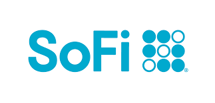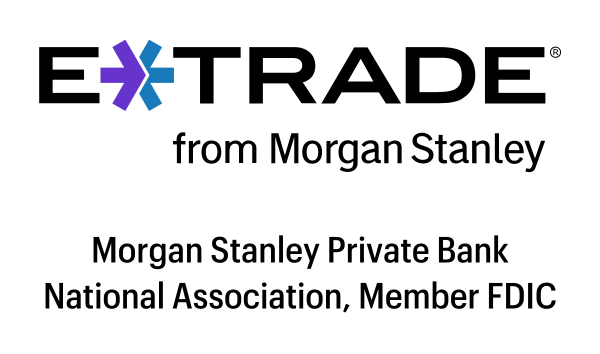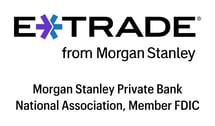Most Americans are still earning pennies in a typical savings account. But the best high-yield savings accounts (HYSAs) today are paying 20x to 30x more -- with zero risk and no fees.
I've personally earned thousands in interest over the past few years just by moving my money into an HYSA. And right now, rates are still near their peak, but that may not last much longer. With potential Fed rate cuts on the horizon, now's a great time to lock in a top-tier yield.
Our expert team has spent over 100 hours researching, reviewing, and testing the best options available. Here are the top picks for high-yield savings accounts to help you make the most of your money.
Featured High-Yield Savings Accounts
If you're short on time, here's a quick list of our best high-yield savings accounts:
- SoFi Checking and Savings (Member FDIC): Earn up to 4.50% for a limited time + earn up to a $300 bonus. Terms apply.
- American Express® High Yield Savings Account (Member FDIC): 3.50% APY as of October 14, 2025
All of the accounts above have APYs that are nearly 10x the national average savings account interest rate (nope, that's not a typo!), and all are FDIC insured up to $250,000.
- Our team of experts assessed 100+ banking institutions
- We evaluate all banking institutions across the same 4 key criteria: annual percentage yield (APY), brand reputation, fees and minimum requirements, and additional perks
- Our bank ratings are never influenced by our advertising partners
- We strictly feature products that offer federal insurance and high customer satisfaction, keeping our recommendations unbiased
Compare all of our best high-yield savings accounts:
| Offer | APY | Bonus | Rating | Next Steps | |
|---|---|---|---|---|---|
|
Limited-Time Offer
SoFi Checking and Savings
Open Account for SoFi Checking and Savings
On SoFi's Secure Website.
4.90/5
Our ratings are based on a 5 star scale.
5 stars equals Best.
4 stars equals Excellent.
3 stars equals Good.
2 stars equals Fair.
1 star equals Poor.
We want your money to work harder for you. Which is why our ratings are biased toward offers that deliver versatility while cutting out-of-pocket costs.
|
up to 4.50%
Rate info
Earn up to 4.50% Annual Percentage Yield (APY) on SoFi Savings with a 0.70% APY Boost (added to the 3.80% APY as of 8/5/25) for up to 6 months. Open a new SoFi Checking & Savings account with Eligible Direct Deposit by 1/31/26. Rates variable, subject to change. Terms apply at sofi.com/banking#2. SoFi Bank, N.A. Member FDIC.
Min. balance to earn: $0
|
Limited-time offer:
Earn up to $300 and +0.70% Boost on Savings APY with direct deposit. Terms apply.
Earn up to 4.50% Annual Percentage Yield (APY) on SoFi Savings with a 0.70% APY Boost (added to the 3.80% APY as of 8/5/25) for up to 6 months. Open a new SoFi Checking & Savings account with Eligible Direct Deposit by 1/31/26. Rates variable, subject to change. Terms apply at sofi.com/banking#2. SoFi Bank, N.A. Member FDIC.
|
4.90/5
Our ratings are based on a 5 star scale.
5 stars equals Best.
4 stars equals Excellent.
3 stars equals Good.
2 stars equals Fair.
1 star equals Poor.
We want your money to work harder for you. Which is why our ratings are biased toward offers that deliver versatility while cutting out-of-pocket costs.
|
Open Account for SoFi Checking and Savings
On SoFi's Secure Website. |
|
|
American Express® High Yield Savings Account
Open Account for American Express® High Yield Savings Account
On American Express's Secure Website.
4.80/5
Our ratings are based on a 5 star scale.
5 stars equals Best.
4 stars equals Excellent.
3 stars equals Good.
2 stars equals Fair.
1 star equals Poor.
We want your money to work harder for you. Which is why our ratings are biased toward offers that deliver versatility while cutting out-of-pocket costs.
|
3.50%
Rate info
3.50% annual percentage yield as of October 14, 2025. Terms apply.
Min. balance to earn: $0
|
N/A
|
4.80/5
Our ratings are based on a 5 star scale.
5 stars equals Best.
4 stars equals Excellent.
3 stars equals Good.
2 stars equals Fair.
1 star equals Poor.
We want your money to work harder for you. Which is why our ratings are biased toward offers that deliver versatility while cutting out-of-pocket costs.
|
Open Account for American Express® High Yield Savings Account
On American Express's Secure Website. |
|
|
Western Alliance Bank High-Yield Savings Premier
Open Account for Western Alliance Bank High-Yield Savings Premier
On Western Alliance Bank's Secure Website.
4.40/5
Our ratings are based on a 5 star scale.
5 stars equals Best.
4 stars equals Excellent.
3 stars equals Good.
2 stars equals Fair.
1 star equals Poor.
We want your money to work harder for you. Which is why our ratings are biased toward offers that deliver versatility while cutting out-of-pocket costs.
|
4.10%
Rate info
The annual percentage yield (APY) is accurate as of September 30, 2025 and subject to change at the Bank’s discretion. Refer to product’s website for latest APY rate. Minimum deposit required to open an account is $500 and a minimum balance of $0.01 is required to earn the advertised APY.
Min. balance to earn: $500 to open, $0.01 for max APY
|
N/A
|
4.40/5
Our ratings are based on a 5 star scale.
5 stars equals Best.
4 stars equals Excellent.
3 stars equals Good.
2 stars equals Fair.
1 star equals Poor.
We want your money to work harder for you. Which is why our ratings are biased toward offers that deliver versatility while cutting out-of-pocket costs.
|
Open Account for Western Alliance Bank High-Yield Savings Premier
On Western Alliance Bank's Secure Website. |
|
|
The annual percentage yield (APY) is accurate as of September 30, 2025 and subject to change at the Bank’s discretion. Refer to product’s website for latest APY rate. Minimum deposit required to open an account is $500 and a minimum balance of $0.01 is required to earn the advertised APY. |
The annual percentage yield (APY) is accurate as of September 30, 2025 and subject to change at the Bank’s discretion. Refer to product’s website for latest APY rate. Minimum deposit required to open an account is $500 and a minimum balance of $0.01 is required to earn the advertised APY. |
||||
|
Axos ONE®
Open Account for Axos ONE®
On Axos Bank's Secure Website.
4.50/5
Our ratings are based on a 5 star scale.
5 stars equals Best.
4 stars equals Excellent.
3 stars equals Good.
2 stars equals Fair.
1 star equals Poor.
We want your money to work harder for you. Which is why our ratings are biased toward offers that deliver versatility while cutting out-of-pocket costs.
|
up to 4.51%
Rate info
Axos ONE Checking earns a base rate of 0% APY. It earns a promotional rate of 0.51% APY for statement cycles in which requirements are met. Axos ONE Savings earns a base rate of 1.00% APY. It earns a promotional rate of up to 4.51% APY for statement cycles in which requirements are met.
Min. balance to earn: $0 for base rates, $1,500 for max APY
|
N/A
|
4.50/5
Our ratings are based on a 5 star scale.
5 stars equals Best.
4 stars equals Excellent.
3 stars equals Good.
2 stars equals Fair.
1 star equals Poor.
We want your money to work harder for you. Which is why our ratings are biased toward offers that deliver versatility while cutting out-of-pocket costs.
|
Open Account for Axos ONE®
On Axos Bank's Secure Website. |
|
|
The Annual Percentage Yield (APY) is accurate as of 10/01/2025. The base and promotional interest rate and corresponding APY for Axos ONE® Checking is variable and is set at our discretion. The base and promotional interest rate and corresponding APY for Axos ONE® Savings is variable and is set at our discretion. Axos ONE® Savings is a tiered variable rate account. Axos ONE® Checking is a non-tiered variable rate account. Interest rates may change as often as daily without prior notice. Fees may reduce earnings. Promotional terms and conditions are subject to change or removal without notice. Incentive may be taxable and reported on IRS Form 1099-MISC. Consult your tax advisor. After the accounts are opened, the amount of incentive earned will depend on meeting the additional requirements outlined below. The Axos ONE® Checking account will earn a base rate of 0.00% APY. The Axos ONE® Savings account will earn a base rate of up to 1.00% APY. Axos ONE® accounts are eligible to receive a promotional APY for each statement cycle where the promotional criteria are met during the Qualification Period. To receive the promotional APY on both Axos ONE® Checking and Axos ONE® Savings, the Axos ONE® Checking account must meet both of the requirements in either Option 1 or Option 2 below during the Qualification Period: Option 1
Option 2
If both of the requirements in either Option 1 or Option 2 above are met during the Qualification Period:
The Qualification Period begins on the first business day of the month and runs through the 25th of the month. If the 25th of the month is followed by a non-business day, the average daily balance will be calculated including the following non-business day(s). Any qualifying deposits or qualifying direct deposits received after the 25th of the month will count toward the next Qualification Period. The Qualification Period for new accounts will begin on the day the account is approved. New accounts opened on or after the 25th of the month will be eligible to earn the promotional APY starting in the following month. A direct deposit is an electronic deposit of your paycheck or government benefits, such as Social Security, Disability, etc. International paychecks, international government benefits, other deposits (i.e., online banking transfers, ATM and mobile check deposits, etc.), or person-to-person payments are not considered a direct deposit. Qualifying deposits only include deposits from the following eligible sources: (i) ACH transfers from external accounts, (ii) inbound wire transfers from external accounts, (iii) check deposits. Qualifying deposits do not include: (i) transfers internal to the bank (i.e., transfers between an account holder’s Checking and/or Savings account), (ii) interest payments, (iii) promotional bonuses, (iv) credits, reversals, and refunds. Both accounts must be in an open and active status on the 25th of the month and on the date the interest is paid to receive the promotional APY for that statement cycle. If either account closes during the Qualification Period, neither account will be eligible to earn the promotional APY for that statement cycle. Account transactions may take one or more business days from the transaction date to post to the account. |
The Annual Percentage Yield (APY) is accurate as of 10/01/2025. The base and promotional interest rate and corresponding APY for Axos ONE® Checking is variable and is set at our discretion. The base and promotional interest rate and corresponding APY for Axos ONE® Savings is variable and is set at our discretion. Axos ONE® Savings is a tiered variable rate account. Axos ONE® Checking is a non-tiered variable rate account. Interest rates may change as often as daily without prior notice. Fees may reduce earnings. Promotional terms and conditions are subject to change or removal without notice. Incentive may be taxable and reported on IRS Form 1099-MISC. Consult your tax advisor. After the accounts are opened, the amount of incentive earned will depend on meeting the additional requirements outlined below. The Axos ONE® Checking account will earn a base rate of 0.00% APY. The Axos ONE® Savings account will earn a base rate of up to 1.00% APY. Axos ONE® accounts are eligible to receive a promotional APY for each statement cycle where the promotional criteria are met during the Qualification Period. To receive the promotional APY on both Axos ONE® Checking and Axos ONE® Savings, the Axos ONE® Checking account must meet both of the requirements in either Option 1 or Option 2 below during the Qualification Period: Option 1
Option 2
If both of the requirements in either Option 1 or Option 2 above are met during the Qualification Period:
The Qualification Period begins on the first business day of the month and runs through the 25th of the month. If the 25th of the month is followed by a non-business day, the average daily balance will be calculated including the following non-business day(s). Any qualifying deposits or qualifying direct deposits received after the 25th of the month will count toward the next Qualification Period. The Qualification Period for new accounts will begin on the day the account is approved. New accounts opened on or after the 25th of the month will be eligible to earn the promotional APY starting in the following month. A direct deposit is an electronic deposit of your paycheck or government benefits, such as Social Security, Disability, etc. International paychecks, international government benefits, other deposits (i.e., online banking transfers, ATM and mobile check deposits, etc.), or person-to-person payments are not considered a direct deposit. Qualifying deposits only include deposits from the following eligible sources: (i) ACH transfers from external accounts, (ii) inbound wire transfers from external accounts, (iii) check deposits. Qualifying deposits do not include: (i) transfers internal to the bank (i.e., transfers between an account holder’s Checking and/or Savings account), (ii) interest payments, (iii) promotional bonuses, (iv) credits, reversals, and refunds. Both accounts must be in an open and active status on the 25th of the month and on the date the interest is paid to receive the promotional APY for that statement cycle. If either account closes during the Qualification Period, neither account will be eligible to earn the promotional APY for that statement cycle. Account transactions may take one or more business days from the transaction date to post to the account. |
||||
|
LendingClub LevelUp Savings
Open Account for LendingClub LevelUp Savings
On LendingClub's Secure Website.
4.60/5
Our ratings are based on a 5 star scale.
5 stars equals Best.
4 stars equals Excellent.
3 stars equals Good.
2 stars equals Fair.
1 star equals Poor.
We want your money to work harder for you. Which is why our ratings are biased toward offers that deliver versatility while cutting out-of-pocket costs.
|
4.20% APY with $250+ in monthly deposits
Rate info
LevelUp Rate of 4.20% APY applied to full balance with $250+ in deposits in Evaluation Period. Otherwise, accounts earn Standard Rate of 3.20% APY. LevelUp Rate applies for first two statement cycles. Rates variable & subject to change at any time. See terms: https://www.lendingclub.com/legal/deposits/levelup-savings-t-and-cs
Min. balance to earn: $0 to open, $250 cumulative monthly deposits for max APY
|
N/A
|
4.60/5
Our ratings are based on a 5 star scale.
5 stars equals Best.
4 stars equals Excellent.
3 stars equals Good.
2 stars equals Fair.
1 star equals Poor.
We want your money to work harder for you. Which is why our ratings are biased toward offers that deliver versatility while cutting out-of-pocket costs.
|
Open Account for LendingClub LevelUp Savings
On LendingClub's Secure Website. |
|
|
Capital One 360 Performance Savings
Open Account for Capital One 360 Performance Savings
On Capital One's Secure Website.
4.80/5
Our ratings are based on a 5 star scale.
5 stars equals Best.
4 stars equals Excellent.
3 stars equals Good.
2 stars equals Fair.
1 star equals Poor.
We want your money to work harder for you. Which is why our ratings are biased toward offers that deliver versatility while cutting out-of-pocket costs.
|
3.40%
Rate info
See Capital One website for most up-to-date rates. Advertised Annual Percentage Yield (APY) is variable and accurate as of Oct. 1, 2025. Rates are subject to change at any time before or after account opening.
Min. balance to earn: $0
|
N/A
|
4.80/5
Our ratings are based on a 5 star scale.
5 stars equals Best.
4 stars equals Excellent.
3 stars equals Good.
2 stars equals Fair.
1 star equals Poor.
We want your money to work harder for you. Which is why our ratings are biased toward offers that deliver versatility while cutting out-of-pocket costs.
|
Open Account for Capital One 360 Performance Savings
On Capital One's Secure Website. |
|
|
Barclays Tiered Savings
Open Account for Barclays Tiered Savings
On Barclays' Secure Website.
4.80/5
Our ratings are based on a 5 star scale.
5 stars equals Best.
4 stars equals Excellent.
3 stars equals Good.
2 stars equals Fair.
1 star equals Poor.
We want your money to work harder for you. Which is why our ratings are biased toward offers that deliver versatility while cutting out-of-pocket costs.
|
3.90%
Rate info
Balances less than $250,000 earn 3.90%, and balances greater than $250,000 earn 4.10%.
Min. balance to earn: $0
|
Special Offer
Earn $200 Bonus with qualifying activities. Terms Apply.
To earn a $200 bonus, new customers can open a savings account; deposit $30,000 or more within 30 days; and maintain at least that balance for 120 consecutive days. The bonus will be credited to your account within 60 days of meeting these requirements. Offer ends Dec. 31, 2025. Terms apply.
|
4.80/5
Our ratings are based on a 5 star scale.
5 stars equals Best.
4 stars equals Excellent.
3 stars equals Good.
2 stars equals Fair.
1 star equals Poor.
We want your money to work harder for you. Which is why our ratings are biased toward offers that deliver versatility while cutting out-of-pocket costs.
|
Open Account for Barclays Tiered Savings
On Barclays' Secure Website. |
|
|
E*TRADE Premium Savings
Open Account for E*TRADE Premium Savings
On E*TRADE's Secure Website.
4.70/5
Our ratings are based on a 5 star scale.
5 stars equals Best.
4 stars equals Excellent.
3 stars equals Good.
2 stars equals Fair.
1 star equals Poor.
We want your money to work harder for you. Which is why our ratings are biased toward offers that deliver versatility while cutting out-of-pocket costs.
|
3.75%
Min. balance to earn: $0.01
|
N/A
|
4.70/5
Our ratings are based on a 5 star scale.
5 stars equals Best.
4 stars equals Excellent.
3 stars equals Good.
2 stars equals Fair.
1 star equals Poor.
We want your money to work harder for you. Which is why our ratings are biased toward offers that deliver versatility while cutting out-of-pocket costs.
|
Open Account for E*TRADE Premium Savings
On E*TRADE's Secure Website. |
|

Member FDIC.
4.80/5
Our ratings are based on a 5 star scale.
5 stars equals Best.
4 stars equals Excellent.
3 stars equals Good.
2 stars equals Fair.
1 star equals Poor.
We want your money to work harder for you. Which is why our ratings are biased toward offers that deliver versatility while cutting out-of-pocket costs.
|
3.40%
Min. balance to earn: $0
|
N/A
|
4.80/5
Our ratings are based on a 5 star scale.
5 stars equals Best.
4 stars equals Excellent.
3 stars equals Good.
2 stars equals Fair.
1 star equals Poor.
We want your money to work harder for you. Which is why our ratings are biased toward offers that deliver versatility while cutting out-of-pocket costs.
|
||

Member FDIC.
4.70/5
Our ratings are based on a 5 star scale.
5 stars equals Best.
4 stars equals Excellent.
3 stars equals Good.
2 stars equals Fair.
1 star equals Poor.
We want your money to work harder for you. Which is why our ratings are biased toward offers that deliver versatility while cutting out-of-pocket costs.
|
4.05%
Min. balance to earn: $0
|
N/A
|
4.70/5
Our ratings are based on a 5 star scale.
5 stars equals Best.
4 stars equals Excellent.
3 stars equals Good.
2 stars equals Fair.
1 star equals Poor.
We want your money to work harder for you. Which is why our ratings are biased toward offers that deliver versatility while cutting out-of-pocket costs.
|
||
|
EverBank Performance℠ Savings is unavailable on Motley Fool Money. All information was collected independently and not reviewed for accuracy or provided by the issuer. Some items may be out of date. |
EverBank Performance℠ Savings is unavailable on Motley Fool Money. All information was collected independently and not reviewed for accuracy or provided by the issuer. Some items may be out of date. |
||||
At Motley Fool Money, we rate savings accounts on a five-star scale, shown in tenths of a point to highlight even small differences between products. Accounts are evaluated across four main criteria:
- APY
- Brand and reputation
- Fees and minimum requirements
- Accessibility and features
Scores may be adjusted to reward limited-time high rates or penalize accounts with excessive fees. Our goal is to highlight accounts that are competitive, easy to use, and backed by trusted institutions. Learn more about how Motley Fool Money rates bank accounts.
At Motley Fool Money, we rate savings accounts on a five-star scale, shown in tenths of a point to highlight even small differences between products. Accounts are evaluated across four main criteria:
- APY
- Brand and reputation
- Fees and minimum requirements
- Accessibility and features
Scores may be adjusted to reward limited-time high rates or penalize accounts with excessive fees. Our goal is to highlight accounts that are competitive, easy to use, and backed by trusted institutions. Learn more about how Motley Fool Money rates bank accounts.

The Federal Reserve reduced the target for the fed funds rate in September of 2025, and more cuts are expected. This will lead to lower yields on high-yield savings accounts.
Even so, these accounts remain a smart place to keep money you want protected from the ups and downs of the stock and bond markets. Cash doesn’t lose value, and most high-yield savings accounts are FDIC insured up to $250,000 per account type.
They’re called “high-yield” savings accounts for a reason. Regardless of what the Fed does next, these accounts typically offer higher returns than most standard checking or savings options.
-Robert Brokamp, Certified Financial Planner® and Senior Advisor at The Motley Fool
Reviews of our favorite high-yield savings accounts
Best for direct deposit
SoFi Checking and Savings
On SoFi's Secure Website.

On SoFi's Secure Website.
- Competitive APY on both Savings and Checking
- No monthly account fee
- Welcome bonus up to $300 (direct deposit required)
- ATM access
- Unlimited number of external transfers (up to daily transaction limits)
- FDIC insured (up to $3M with opt-in to SoFi Insured Deposit Program)
- Early access to direct deposits
- Tools to help you track savings goals
- Combo account only; no stand-alone savings or checking
- Maximum Savings APY requires direct deposit
- No branch access; online only
- Overdraft protection requires monthly direct deposit minimum
For those who plan to set up direct deposit with their new account, we think SoFi Checking and Savings (Member FDIC) is hard to beat. Not only does this savings account offer a strong APY, but the linked checking account earns an above-average rate, too -- which is a rare perk. Plus, new customers earn a bonus of up to $300 with eligible direct deposit. Frankly, it's the kind of combo that could make it worthwhile to switch banking relationships.
Why I like it: SoFi® has a way of winning people over. You might come for the high annual percentage yield (APY), but many end up switching their everyday banking here too. With no account fees, helpful savings tools, and a super clean app, it just makes managing money easy.
And right now, there's a limited-time offer available: Earn up to $300 and +0.70% Boost on Savings APY with direct deposit. Terms apply.
What you should know: To unlock the best perks and highest APY, you'll need to set up direct deposit. SoFi® automatically opens both a checking and savings account, so you can move money between spending and saving without skipping a beat.

"I was interested in an online bank since I'd seen that a lot of them offered higher APYs than traditional banks. We chose to go with SoFi® because it offered some of the highest rates and had good reviews. Overall, it has been a good fit for us. Transfers are seamless, and the app is easy to navigate and keep track of activity with."
-Liz Wilson, Software Developer
Best for AMEX cardholders
American Express® High Yield Savings Account
On American Express's Secure Website.

On American Express's Secure Website.
- Competitive APY
- No monthly account fee
- Comfort of a well-known brand and reputation
- Unlimited number of external transfers (up to daily transaction limits)
- 24/7 customer support
- FDIC insured
- No ATM access
- No branch access; online only
- No cash deposits
American Express High Yield Savings may not have the highest APY on our list, but it still offers a rate well above average and requires no minimum deposit to qualify for the highest APY. It's a good fit for those who want to save at a competitive rate while avoiding withdrawal limits or minimum balance requirements.
Open an American Express® High Yield Savings Account Account
Why I like it: The American Express® High Yield Savings Account is a high-trust option from a name you already know. There are no monthly fees, no minimums, and the account is refreshingly easy to use. It's also included in our list of the 10 safest banks in the U.S., so you can rest easy parking a large balance there.
What you should know: If you're already an American Express National Bank (Member FDIC) customer, adding this HYSA to your lineup is quick and seamless. Just keep in mind Amex is an online-only bank -- there's no ATM access or debit card, so your funds must be accessed via its website or mobile app.

"I was drawn to an American Express® High Yield Savings Account because of its high APY, absence of fees and withdrawal limits, and my trust in the brand. The account integrates seamlessly with my other bank accounts. The user interface is easy to use. As an existing Amex card holder, opening a savings account with them was painless."
-Jack Caporal, Research Director
Best for earning a high rate without tiers or balance requirements
Western Alliance Bank High-Yield Savings Premier
On Western Alliance Bank's Secure Website.

On Western Alliance Bank's Secure Website.
- Competitive APY
- No monthly account fee
- Unlimited number of external transfers (up to daily transaction limits)
- FDIC insured
- Can open an individual or joint account
- Deposits and withdrawals can only be conducted via ACH transfer to/from an external bank account (limit to one linked account)
- No ATM access
- No wire transfers (inbound and outbound)
- No branch access; online only
Western Alliance Bank offers a higher APY than most high-yield savings accounts. Plus, it's FDIC insured; therefore, deposits are perfectly safe up to applicable legal limits. The main drawback is that accounts don't have many features. For example, you can only deposit and withdraw funds via ACH transfer to/from an external bank account. This account is solid for those who want a sky-high APY, but don't mind a bare-bones banking experience.
The annual percentage yield (APY) is accurate as of September 30, 2025 and subject to change at the Bank’s discretion. Refer to product’s website for latest APY rate. Minimum deposit required to open an account is $500 and a minimum balance of $0.01 is required to earn the advertised APY.
Why I like it: Western Alliance Bank High-Yield Savings Premier offers a 4.10% APY on all balances -- no tiers or minimum balance hoops to jump through. You'll need $500 to open the account, but once it's funded, you can maintain any balance and still earn the same competitive rate. It's a strong, straightforward option for savers looking for solid returns from a reputable bank.
What you should know: Even though Western Alliance Bank has an app, you'll need to access your Western Alliance Bank High-Yield Savings Premier account through the bank's website for now. It's an online-only experience, but transfers and account management are easy once you're set up.
Best for maximizing your rate with bundled banking
Axos ONE®
On Axos Bank's Secure Website.

On Axos Bank's Secure Website.
- Earn a competitive APY on checking and savings
- Pay no monthly maintenance or account fees
- No cap on how much you can save
- Access to fee-free ATM network
- Extra conditions required to earn the advertised rate
- No physical branches for in-person help
The Axos ONE® bundle makes your money work overtime – all under one roof. Meet the direct deposit and balance requirements, and you’ll earn up to 4.51% APY on savings and up to 0.51% APY on checking, some of the highest rates we’ve seen lately. There are no physical branches, but you can still access cash easily through a network of over 95,000 fee-free ATMs. It’s a simple, high-reward setup that actually pays off.
The Annual Percentage Yield (APY) is accurate as of 10/01/2025. The base and promotional interest rate and corresponding APY for Axos ONE® Checking is variable and is set at our discretion. The base and promotional interest rate and corresponding APY for Axos ONE® Savings is variable and is set at our discretion. Axos ONE® Savings is a tiered variable rate account. Axos ONE® Checking is a non-tiered variable rate account. Interest rates may change as often as daily without prior notice. Fees may reduce earnings.
Promotional terms and conditions are subject to change or removal without notice. Incentive may be taxable and reported on IRS Form 1099-MISC. Consult your tax advisor. After the accounts are opened, the amount of incentive earned will depend on meeting the additional requirements outlined below.
The Axos ONE® Checking account will earn a base rate of 0.00% APY. The Axos ONE® Savings account will earn a base rate of up to 1.00% APY. Axos ONE® accounts are eligible to receive a promotional APY for each statement cycle where the promotional criteria are met during the Qualification Period. To receive the promotional APY on both Axos ONE® Checking and Axos ONE® Savings, the Axos ONE® Checking account must meet both of the requirements in either Option 1 or Option 2 below during the Qualification Period:
Option 1
- Your Axos ONE® Checking account has received monthly qualifying direct deposits of at least $1,500 in total.
- The average daily balance of your Axos ONE® Checking account is at least $1,500.
Option 2
- Your Axos ONE® Checking account has received monthly qualifying deposits of at least $5,000 in total.
- The average daily balance of your Axos ONE® Checking account is at least $5,000.
If both of the requirements in either Option 1 or Option 2 above are met during the Qualification Period:
- The Axos ONE® Checking account will earn a promotional rate of 0.51% APY for the statement cycle in which the requirements are met.
- The Axos ONE® Savings account will earn a promotional rate of up to 4.51% APY for the statement cycle in which the requirements are met.
The Qualification Period begins on the first business day of the month and runs through the 25th of the month. If the 25th of the month is followed by a non-business day, the average daily balance will be calculated including the following non-business day(s). Any qualifying deposits or qualifying direct deposits received after the 25th of the month will count toward the next Qualification Period. The Qualification Period for new accounts will begin on the day the account is approved. New accounts opened on or after the 25th of the month will be eligible to earn the promotional APY starting in the following month.
A direct deposit is an electronic deposit of your paycheck or government benefits, such as Social Security, Disability, etc. International paychecks, international government benefits, other deposits (i.e., online banking transfers, ATM and mobile check deposits, etc.), or person-to-person payments are not considered a direct deposit.
Qualifying deposits only include deposits from the following eligible sources: (i) ACH transfers from external accounts, (ii) inbound wire transfers from external accounts, (iii) check deposits. Qualifying deposits do not include: (i) transfers internal to the bank (i.e., transfers between an account holder’s Checking and/or Savings account), (ii) interest payments, (iii) promotional bonuses, (iv) credits, reversals, and refunds.
Both accounts must be in an open and active status on the 25th of the month and on the date the interest is paid to receive the promotional APY for that statement cycle. If either account closes during the Qualification Period, neither account will be eligible to earn the promotional APY for that statement cycle. Account transactions may take one or more business days from the transaction date to post to the account.
Why I like it: Axos Bank rewards you for keeping your checking and savings under one roof. When you open an Axos ONE® checking and savings bundle, you can qualify for one of the most competitive APYs available -- a nice perk if you're looking for a simple, all-in-one setup that earns more on your cash.
What you should know: The boosted APY isn't automatic. To qualify, you'll need to meet one of these requirements:
- Receive at least $1,500 in monthly qualifying direct deposits and maintain an average daily balance above $1,500, or
- Receive at least $5,000 in monthly qualifying deposits and keep an average daily balance above $5,000.
If you don't meet the criteria, you'll earn a lower rate.
Best for ATM users
LendingClub LevelUp Savings
On LendingClub's Secure Website.

On LendingClub's Secure Website.
- Competitive APY
- No fees
- Easy ATM access
- Unlimited number of external transfers (up to daily transaction limits)
- Requires you to make monthly deposits to earn the best APY
- ACH outbound transfers limited to $10,000 per day for some accounts
- No branch access; online only
The LendingClub LevelUp Savings account has a lot to offer. At the top of the list is its high APY, though you must deposit monthly to earn the best rate. Next is zero account fees, a strong and straightforward perk. Finally, you get a free ATM card, which you can use to withdraw from thousands of ATMs nationwide. Interested? You can open an account with $0.
Why I like it: This account has one of the highest APYs on the page, provided you can meet the $250 monthly deposit requirement. It's easy to open, easy to use, and there are no monthly fees.
What you should know: LendingClub gives you a debit card connected to your savings account, which is quite rare. Also, it covers ATM fees! Outbound transfers are unlimited, but daily limits may apply depending on your banking status. This is a non-issue for most people, but something to note nonetheless.

"I've had a LendingClub HYSA for three years. They do a great job of assuring me my money is safe despite being an online-only bank. Good communication about my APY, an easy-to-use app, and an ATM card that gives me the option to withdraw if I ever need to. Plus, I've been really pleased with the above-average APY."
-Brooklyn Sprunger, Content Manager
Best for branch access
Capital One 360 Performance Savings
On Capital One's Secure Website.

On Capital One's Secure Website.
- Competitive APY
- No monthly account fee
- Comfort of a well-known brand and reputation
- Branch access (if you live near one)
- 24/7 customer support
- FDIC insured
- No ATM access
Capital One 360 Performance Savings checks all the boxes we look for in a high-yield savings account. It even offers branch locations and Capital One Cafes where customers can seek in-person support (if you live near one). This makes it a great fit when you want to reap the rewards of online banking but aren't quite ready to cut ties with brick-and-mortar banks.
Why I like it: What sets this bank apart is the availability of branch locations and full-service banking support. It just adds a nice layer of convenience rarely found with high-yield savings accounts.
What you should know: While the account offers branch access, this perk is only useful if you live near a Capital One location -- otherwise, in-person banking isn't an option. Make sure to check that before deciding if this is right for you.

"My family and I have enjoyed the convenience of banking with Capital One overall. The accounts are easy to use, the interface is simple, money moves quickly, and while savings rates aren't top of the market, they're much higher than mainline banks."
-Matt Koppenheffer, Coverage Team Lead
Best for set-and-forget banking
Barclays Tiered Savings
On Barclays' Secure Website.

On Barclays' Secure Website.
- Competitive APY
- No monthly account fee
- Unlimited number of external transfers (up to daily transaction limits)
- FDIC insured
- No minimum deposit to open an account
- Balance requirement for maximum APY
- No ATM access
- No wire transfers (inbound or outbound)
- No branch access; online only
Barclays Tiered Savings rewards savers with a tiered APY structure, offering higher rates as your balance grows. No monthly fees and no minimum balance to open mean it's accessible to everyone, while unlimited transfers and withdrawals let you manage your savings your way. And now, you can take advantage of a special offer $200 bonus on top of your savings growth when you open a new account and deposit $30,000 or more. Offer ends Dec. 31, 2025. Terms apply.
Why I like it: If you've got a balance over $250,000, you'll be in the top tier earning the highest APY. But the good news is all other tiers still earn a solid 3.90% APY -- one of the highest on our list.
Plus, there are no monthly fees or balance requirements to worry about. Everybody wins, no matter your balance.
What you should know: There's no debit card or checking account available at Barclays. And since money transfers can take a couple days to process, it's better suited for money you're setting aside for longer-term goals.
Best for integrated banking
Why I like it: E*TRADE recently earned our Best Stock Broker for ETFs Award in 2025. It offers a strong APY, no monthly fees, and easy money transfers between your savings, checking, and investment accounts.
What you should know: This savings account pairs well with the E*TRADE Max-Rate Checking account, which also earns a competitive APY and includes global ATM fee refunds. It's a great fit for savers who also want to keep their investing and banking under one roof.
Best for mobile app
Discover® Online Savings

- Competitive APY
- No monthly account fee
- Comfort of a well-known brand and reputation
- 24/7 customer support
- FDIC insured
- Online only; single branch location in the U.S.
The Discover® Online Savings account promises customers an above-average interest rate and few limitations. Most people won't ever encounter fees with this account, and you won't have to worry about keeping track of your monthly withdrawals either.
Why I like it: Discover® Bank brings the same trusted reputation it's known for in credit cards to its online savings account. You'll get a strong APY, no monthly fees, and a super user-friendly experience.
What you should know: Discover also offers checking accounts, access to 60,000+ fee-free ATMs, and debit cards with cash back rewards. This is very rare, and a perfect fit for those looking to manage all your money in one place.

"I chose Discover® Online Savings first and foremost because of its high APY. However, I am also a Discover credit card holder, so having everything in one easy-to-use mobile app makes it extremely easy to manage my finances. That being said, I've recently noticed other online savings accounts with slightly higher APYs."
-Ethan Mellin, Head of Business Development
Best for no minimum deposit
EverBank Performance℠ Savings

- Competitive APY
- No monthly account fee
- No minimum deposit or minimum balance
- Branch access (in some Florida cities)
- FDIC insured
- Same-day ACH transfers
- Free wire transfers (incoming only)
- No ATM card
- Branches only in Florida
EverBank Performance℠ Savings has one of the top APYs on our savings account radar, especially among accounts that require no minimum deposit. There are no maintenance fees, and there are multiple options for making deposits into the account. For customers who live in Florida, there are several physical locations to visit.
EverBank Performance℠ Savings is unavailable on Motley Fool Money. All information was collected independently and not reviewed for accuracy or provided by the issuer. Some items may be out of date.
Why I like it: EverBank may not be a household name (unless you live in Florida, where it has some branch locations) but it offers one of the highest APYs available right now. This is a no-frills, high-yield account that's built for savers who want to maximize interest above all else.
What you should know: There's no minimum deposit or monthly contribution needed to earn the top APY. Even though EverBank may not be a household name, it's FDIC insured and a trustworthy place to store and grow your money.
How to open a high-yield savings account
Opening an account is fast, easy, and can usually be done entirely online. Most applications take less than 10 minutes.
What you'll need to apply:
- Government-issued ID (like a driver's license or passport)
- Social Security number
- Current address
- External bank account details (to fund your new account)
If you're opening a joint savings account, both people will need to provide this info.
Pro tip: Many banks offer a welcome bonus or top APY only when you set up direct deposit -- so that's worth doing immediately after sign-up. Just take note of your new account number and bank routing details and provide it when needed for direct deposit.
What to know about savings accounts
With a savings account, your bank pays you interest on your money -- usually every month. How much interest you earn is determined by the account's annual percentage yield (APY). You'll earn more interest with an account that has a high APY, but what is a good APY? Understanding what qualifies as a competitive rate can help you maximize your earnings.
The best online savings accounts offer both convenience and high interest rates. A larger balance or a higher savings account interest rate results in more interest.
It's always good to compare savings account interest rates before opening an account. The best savings account interest rates can add a nice bump in your funds without much effort on your part.
Pros and cons of savings accounts
There are advantages and disadvantages that come along with savings accounts. It's important to consider these factors when you're looking for the best savings account for your lifestyle.
Pros
- Earning interest
- Saving as much as you like
- Paying bills with automatic bill pay
- Knowing your money is insured with the FDIC
Cons
- Monthly maintenance fees (sometimes)
- No ATM card or checks (usually)
- Fees for extra withdrawals after your first six withdrawals at some banks
Are high-yield savings accounts safe?
Yes, high-yield savings accounts are safe -- as long as the bank is FDIC insured. This federal protection guarantees your deposits up to $250,000 per account type, even if the bank were to fail. Many online banks offer high-yield savings accounts with competitive rates, but you might be wondering: Are online banks safe? The good news is that reputable online banks follow the same security standards as traditional banks, including FDIC insurance and strong encryption protocols.
If you're looking for extra peace of mind, you might also consider banking with one of the safest banks, which have strong financial stability and customer protections in place.
Compare types of savings accounts
As you compare savings accounts, think about what you'll use the account for.
- Do you want to be able to withdraw your money at any time to cover unexpected expenses?
- Are you saving up for a major goal over several years, and could use every dollar of interest you can earn?
Answering these questions will help you compare and decide which savings account is best for you.
Here's a look at the common types of savings accounts you'll run into.
- Traditional savings account: These accounts are usually easy to open and easy to access. But APYs tend to be pretty low, and most of these accounts carry maintenance fees if your balance falls below a certain amount.
- High-yield savings account: These are similar to traditional savings accounts, but they offer much higher APYs and most don't have monthly maintenance fees.
- Money market account: Money market accounts offer the APYs of a savings account with the easier access of a checking account. However, these accounts usually have higher minimum balance requirements than typical savings accounts.
- Certificate of deposit (CD) account: Certificates of deposit (CDs) can sometimes offer higher APYs than even the top high-yield savings accounts. If you're looking for the best APY on a savings account, CDs are definitely worth considering. But you have to agree not to withdraw your funds for the full CD term (which could be months or years).
- Specialty savings account: A specialty savings account is a savings account that's geared at a certain group of people or goals. Examples include kids' savings accounts, health saving accounts, and education savings accounts.
-
Sources
- https://www.fdic.gov/resources/bankers/national-rates/index.html
- https://www.sofi.com/banking/savings-account/
- https://www.americanexpress.com/en-us/banking/online-savings/high-yield-savings/
- https://www.raisin.com/en-us/banks/nexbank
- https://banking.barclaysus.com/tiered-savings
- https://www.discover.com/online-banking/savings-account/
- https://www.lendingclub.com/personal-savings/high-yield-savings
- https://www.capitalone.com/bank/savings-accounts/online-performance-savings-account/
- https://www.lendingclub.com/personal-savings/high-yield-savings
- https://www.everbank.com/banking/performance-savings
- https://us.etrade.com/bank/premium-savings-account
FAQs
-
A high-yield savings account (HYSA) is a savings account that offers a much higher annual percentage yield (APY) than average and is usually (but not always) offered by an online-based financial institution.
-
Here are a few things to look for in a HYSA:
- High APY: The top savings accounts should include a high APY in range with our picks.
- No monthly maintenance fee: Most of the best savings accounts won't charge a monthly maintenance fee.
- FDIC insurance: Whether you're putting money aside to build an emergency fund or wanting to earn more interest, security is important.
-
A high-yield savings account is a great place to keep your emergency fund, as well as funds for any short-term savings goals (like a vacation or a down payment to purchase a home). And there is nothing wrong with having multiple savings accounts. In fact, it's generally a good idea to keep your emergency savings separate from the rest of your money.








